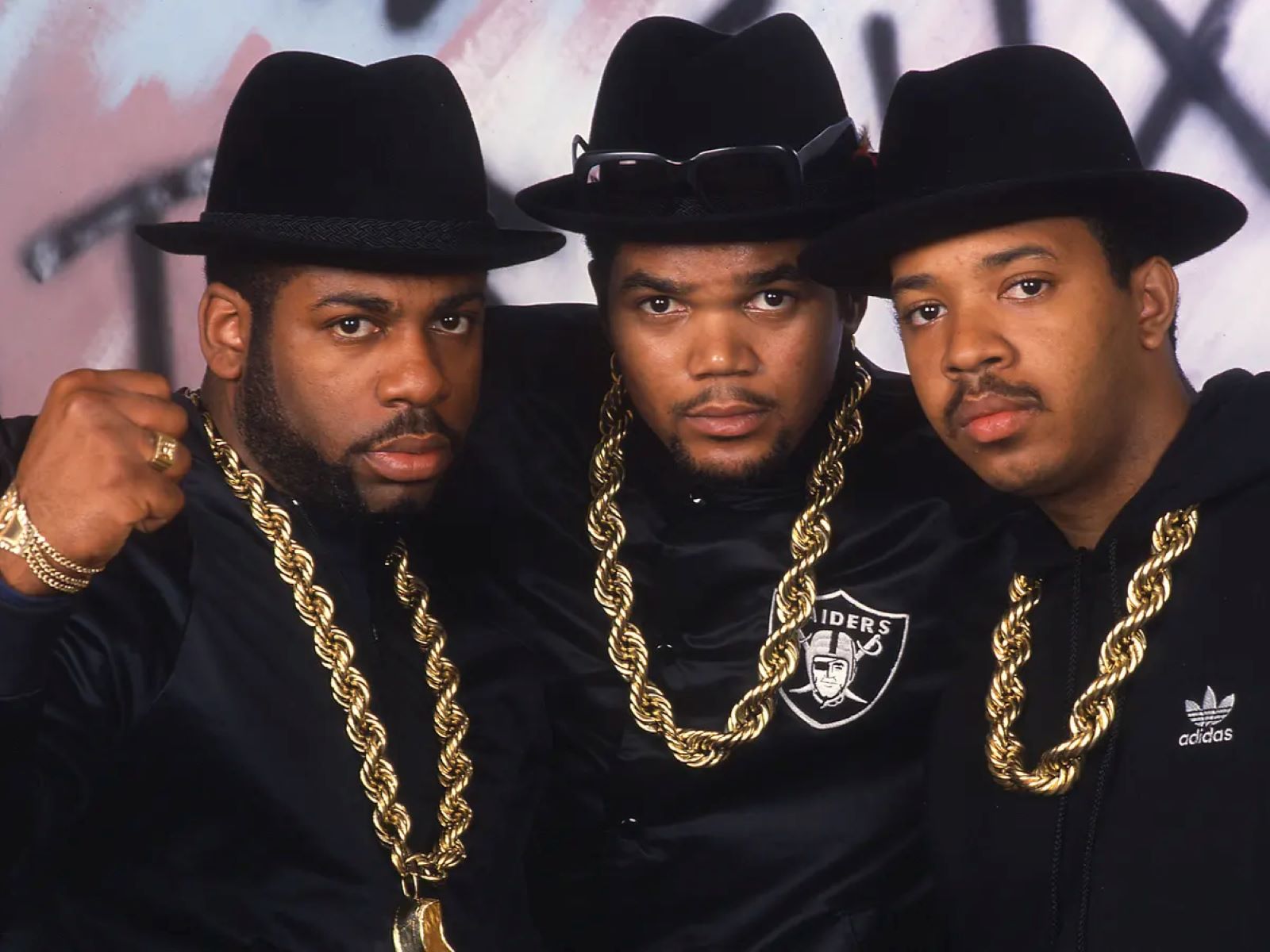Home>Production & Technology>Musician>Who Can Help A Musician Get A Record Deal


Musician
Who Can Help A Musician Get A Record Deal
Published: January 27, 2024
Looking for someone to help you achieve your dream of landing a record deal? Discover the expert guidance and support available for musicians seeking to make their mark in the music industry.
(Many of the links in this article redirect to a specific reviewed product. Your purchase of these products through affiliate links helps to generate commission for AudioLover.com, at no extra cost. Learn more)
Table of Contents
- Introduction
- Understanding the Music Industry
- Identifying Different Roles in the Music Industry
- Music Industry Professionals that Can Help a Musician Get a Record Deal
- Music Managers
- Music Agents
- Music Lawyers
- A&R Representatives
- Independent Label Executives
- Music Producers
- Publicists
- Music Consultants
- Networking and Building Connections
- Conclusion
Introduction
The music industry can be a complex and competitive landscape, with countless aspiring musicians vying for a coveted record deal. While talent and passion are essential, they are not always enough to guarantee success in this highly competitive field. That’s where music industry professionals come in. They are the experts who can help musicians navigate this challenging industry, offering guidance, connections, and expertise to help them secure a record deal.
Understanding the ins and outs of the music industry and the roles played by different professionals is crucial for any musician looking to make their mark. In this article, we will explore the various music industry professionals who can help musicians on their journey to securing a record deal.
Whether you are a singer-songwriter, a band member, or a solo instrumentalist, knowing who to turn to for assistance and guidance can significantly improve your chances of success. These professionals, often with extensive experience and industry connections, can provide valuable insights and support that can make all the difference in getting noticed by record labels.
It’s important to note that while these professionals can assist in getting a record deal, they should be seen as part of a larger team. Hard work, dedication, and honing your craft are still critical factors in pursuing a career in music, and having a team of professionals by your side can amplify your efforts.
Now that we understand the importance of these professionals in the music industry, let’s dive into the different roles and individuals who can help musicians secure a record deal.
Understanding the Music Industry
The music industry is a vast and dynamic ecosystem that encompasses a wide range of activities, including music production, distribution, promotion, and marketing. It is an ever-evolving industry that has undergone significant changes in recent years due to technological advancements and shifts in consumer behavior.
To navigate the music industry effectively and make informed decisions, musicians need to have a solid understanding of its inner workings. This knowledge will enable them to identify opportunities, set realistic goals, and leverage the available resources.
One crucial aspect to grasp is the role of record labels. Record labels are companies that sign and promote talented artists, handle the production and distribution of their music, and provide financial and marketing support. Getting signed to a reputable record label can provide musicians with exposure, resources, and opportunities that can significantly boost their careers.
However, it’s important to note that the music industry is not solely dependent on record labels. With the rise of digital platforms and social media, independent artists now have more opportunities to release and promote their music directly to their audience. Independent artists have the freedom to maintain creative control, keep more of their earnings, and build a dedicated fan base.
Understanding the music industry also involves staying up to date with industry trends, technological advancements, and changes in consumer behavior. Streaming platforms, such as Spotify and Apple Music, have become dominant players in music consumption, emphasizing the importance of digital marketing and online presence.
Furthermore, musicians should be aware of the impact of live performances and touring on their careers. Concerts and festivals are not only opportunities for musicians to connect with their fans, but they also generate revenue and attract the attention of industry professionals.
Ultimately, understanding the music industry requires musicians to have a multifaceted approach that encompasses both traditional and digital strategies. By staying informed and adaptable to industry changes, musicians can position themselves for success and increase their chances of securing a record deal.
Identifying Different Roles in the Music Industry
The music industry is a collaborative and interconnected network of professionals who work together to support and promote musicians. Understanding the different roles within this industry is crucial for musicians seeking a record deal. Let’s explore some of the key players who contribute to the success of artists:
- Music Managers: Music managers are responsible for overseeing an artist’s career and ensuring their best interests are represented. They handle various aspects, including booking shows, negotiating contracts, and strategic decision-making.
- Music Agents: Agents work on behalf of artists to secure live performances, tours, and appearances. They have extensive connections in the industry and negotiate deals to maximize the artist’s exposure and financial benefits.
- Music Lawyers: Music lawyers specialize in the legal aspects of the music industry. They help with contract negotiations, copyright issues, licensing agreements, and protecting the artist’s rights and intellectual property.
- A&R Representatives: A&R (Artists and Repertoire) representatives are talent scouts for record labels. They are responsible for discovering and signing new artists. A&R reps evaluate artists based on their talent, market potential, and fit with the record label’s brand.
- Independent Label Executives: Independent record label executives play a vital role in nurturing emerging talent. They provide artists with the resources and support necessary for recording, production, marketing, and distribution. Working with an independent label often offers more creative freedom and personalized attention.
- Music Producers: Music producers are responsible for the overall sound and quality of a recording. They work closely with artists to bring their vision to life, offering guidance on music arrangement, instrumentation, and vocal performances.
- Publicists: Publicists are responsible for generating media coverage and creating buzz around artists. They pitch music to journalists, arrange interviews, and manage the artist’s public image and brand.
- Music Consultants: Music consultants provide strategic advice and guidance to artists. They help develop marketing strategies, identify target audiences, and navigate the ever-changing music industry landscape.
- Networking and Building Connections: While not a specific role, networking and building connections within the industry play a crucial part in a musician’s journey. Attending industry events, collaborating with other artists, and connecting with industry professionals can open doors and provide valuable opportunities.
These are just some of the many roles within the music industry that can help musicians secure a record deal. It’s important for musicians to understand these roles and identify which professionals can best support their career goals. Building a strong team of industry professionals and networking strategically can significantly enhance a musician’s chances of securing a record deal and achieving long-term success in the industry.
Music Industry Professionals that Can Help a Musician Get a Record Deal
Securing a record deal is a major milestone for any musician, as it provides the opportunity for wider exposure, professional support, and the resources needed to advance their music career. While talent and hard work are vital, enlisting the assistance of music industry professionals can greatly enhance a musician’s chances of landing that coveted record deal. Let’s explore some of the key professionals who can offer valuable guidance and support:
- Music Managers: A skilled music manager can be instrumental in helping musicians navigate their career paths. They have the industry connections, insider knowledge, and experience to guide artists towards the right record labels, negotiate contracts, and create strategic plans for growth and success.
- Music Agents: Music agents specialize in booking live performances and securing career-building opportunities for musicians. They have extensive networks and can connect artists with the right venues, festivals, and events that attract record label executives and industry professionals.
- Music Lawyers: Music lawyers are essential for navigating the legal complexities of the music industry. They ensure that artists understand their rights and negotiate fair deals with record labels. Having a music lawyer involved can protect artists from entering unfavorable agreements and help them secure more favorable terms in their record deals.
- A&R Representatives: A&R representatives are the talent scouts for record labels. Getting noticed by the right A&R rep can lead to a record deal. Building relationships with A&R representatives, attending industry showcases, and showcasing exceptional talent can significantly increase the likelihood of getting signed to a reputable record label.
- Independent Label Executives: Independent record label executives are a valuable resource for musicians seeking a record deal. They often have a more personalized approach and a strong commitment to nurturing artists’ careers. Working with an independent label can lead to opportunities to collaborate with established artists, access creative resources, and benefit from their industry expertise.
- Music Producers: Music producers can play a vital role in attracting the attention of record labels. They have the technical expertise and artistic vision to elevate a musician’s recordings and create standout tracks. Producers with a track record of success can bring credibility and appeal to a musician’s body of work, making them more attractive to record labels.
- Publicists: Publicists are skilled professionals who can generate media coverage and create buzz around musicians. They work to secure features and interviews in influential publications, online platforms, and on radio stations, helping to build the artist’s brand and increase their visibility in the eyes of record label executives.
- Music Consultants: Music consultants offer strategic advice and guidance to musicians on how to navigate the complex music industry. They can assist in developing a compelling artist image, identifying target markets, and creating marketing strategies to capture the attention of record labels. Music consultants provide insights based on their knowledge of trends and industry dynamics.
- Networking and Building Connections: Building relationships within the music industry is essential for securing a record deal. Attending industry events, participating in music conferences, and collaborating with other artists can lead to valuable connections. Networking provides opportunities to showcase talent directly to industry professionals and opens doors for potential collaborations or recommendations.
It’s important to note that while these professionals can play a crucial role in helping musicians land a record deal, it’s not a guaranteed pathway. Ultimately, it is the musicians’ talent, perseverance, and commitment to their craft that will make the biggest impact. By leveraging the expertise and connections of these music industry professionals, musicians can increase their chances of reaching record label executives and achieving their dreams of a successful music career.
Music Managers
Music managers are invaluable assets for musicians seeking a record deal. They are responsible for overseeing all aspects of an artist’s career, acting as a strategic partner and advisor. A skilled music manager brings industry knowledge, connections, and business acumen to the table, helping musicians navigate the competitive music landscape.
One of the primary roles of a music manager is to help artists secure a record deal. They have extensive networks and relationships with record label executives, A&R representatives, and industry professionals. Music managers leverage these connections to pitch artists’ music, arrange meetings, and negotiate contracts with the right record labels.
Additionally, music managers assist in developing an artist’s brand and image. They work closely with musicians to define and refine their unique sound, visual aesthetics, and overall identity. This cohesive brand helps capture the attention and interest of record labels looking for fresh and marketable talent.
Furthermore, music managers handle various administrative tasks, allowing artists to focus on their music. They manage logistics, including scheduling, budgeting, and hiring of supporting staff, such as booking agents and publicists. This enables artists to concentrate on honing their craft and producing high-quality music.
Music managers also play a crucial role in strategic decision-making. They offer guidance on which opportunities to pursue and which to decline, ensuring that the artist’s career progresses in a manner aligned with their long-term goals. This includes assessing potential record deals, evaluating contract terms, and identifying potential red flags or unfavorable clauses.
Moreover, music managers act as the artist’s advocate, ensuring that their best interests are represented and protected. They assist in contract negotiations, ensuring fair compensation, creative control, and other important rights. Music managers work to strike a balance between the artist’s creative vision and the commercial realities of the music industry.
Ultimately, having a music manager by their side can significantly enhance a musician’s chances of securing a record deal. The manager’s expertise, industry connections, and strategic guidance help artists make informed decisions and navigate the complexities of the music industry. With a dedicated music manager, musicians can focus on their music while having a trusted partner working tirelessly to connect them with the right record label to bring their talent to the world.
Music Agents
Music agents are essential professionals in the music industry who specialize in booking live performances, tours, and appearances for musicians. They play a crucial role in helping artists build their careers and secure a record deal by connecting them with performance opportunities that can attract the attention of record label executives and industry professionals.
One of the primary responsibilities of music agents is to scout and secure live performance opportunities for musicians. They have extensive networks and relationships with venues, promoters, and event organizers, allowing them to identify and secure desirable gigs for their clients. These performances can range from local showcases to opening slots for established artists or coveted spots at renowned music festivals.
By booking live performances, music agents provide artists with the opportunity to showcase their talent and connect with audiences. These performances not only allow musicians to refine their stage presence and develop their fan base but also attract the attention of record label representatives who frequently attend live shows in search of promising acts.
Music agents also work closely with artists to strategically plan and execute tours. They analyze the demographic and geographical reach of an artist’s fan base to identify cities and regions where successful shows can be organized. By coordinating tour logistics, including travel arrangements, accommodations, and promotional efforts, music agents help artists cultivate a strong live presence and increase their visibility within the industry.
In addition to booking shows and tours, music agents negotiate deals and contracts on behalf of their clients. They leverage their knowledge of industry standards, market demand, and artist value to secure favorable terms and maximize the artist’s financial compensation. This includes factors such as performance fees, merchandise revenue, and promotional support from the venues or event organizers.
Furthermore, music agents serve as trusted advisors to musicians, guiding them in making informed career decisions. They provide industry insights, offer advice on strategic partnerships and collaborations, and help artists navigate the complex business side of the music industry. Music agents are well-versed in industry trends and can provide valuable guidance on which opportunities align with the artist’s goals and can lead to a record deal.
In summary, music agents play a vital role in helping musicians secure a record deal by booking live performances, organizing tours, negotiating contracts, and offering strategic advice. With their industry connections and expertise, music agents can open doors to opportunities that elevate an artist’s profile and increase their chances of catching the attention of record label executives. Collaborating with a skilled and reputable music agent can be a game-changer for musicians looking to make their mark and secure a record deal in the competitive music industry.
Music Lawyers
When it comes to navigating the legal intricacies of the music industry, music lawyers are indispensable professionals who can provide essential guidance and support to musicians seeking a record deal. Music lawyers are experts in entertainment law, specializing in the unique legal challenges and considerations that arise in the music business.
One of the primary roles of music lawyers is to protect the rights and interests of musicians. They assist in reviewing and negotiating record contracts, ensuring that the terms are fair, reasonable, and in the best interests of the artist. Music lawyers have a deep understanding of industry standards, copyright law, royalty structures, and contractual obligations, enabling them to navigate complex negotiations and secure more favorable terms for their clients.
Music lawyers also play a crucial role in safeguarding artists’ intellectual property rights. They assist in copyright registration for songs, compositions, and recordings to ensure that artists are properly credited and protected from unauthorized use or infringement. In the event of copyright disputes, music lawyers are well-equipped to handle the legal proceedings and protect the artist’s rights.
Additionally, music lawyers provide guidance on licensing agreements. They ensure that artists understand the terms and conditions of licensing their music for commercial use, such as in films, advertisements, or television shows. This helps musicians generate additional revenue streams and navigate the complexities of licensing deals to ensure fair compensation.
Music lawyers also assist in resolving disputes and enforcing legal rights. In the event of contract disputes, copyright infringement claims, or conflicts with record labels or other industry professionals, music lawyers are instrumental in protecting the artist’s interests. They can represent musicians in legal proceedings, negotiate settlements, and advocate for fair treatment.
Furthermore, music lawyers stay abreast of changes in music industry regulations and legislation, providing artists with timely advice on legal implications and compliance requirements. This ensures that musicians are properly informed and can make informed decisions that comply with legal standards.
Overall, music lawyers serve as trusted advisors and advocates for musicians, helping them navigate the legal complexities of the music industry. By working with a knowledgeable and experienced music lawyer, musicians can ensure that their rights are protected, contracts are fair, and they are equipped to make informed decisions that best serve their career interests. Music lawyers play a vital role in empowering musicians to confidently pursue record deals while safeguarding their legal rights and interests in the ever-evolving music industry.
A&R Representatives
A&R (Artists and Repertoire) representatives are key players in the music industry, responsible for scouting and signing talented artists on behalf of record labels. They act as the bridge between musicians and record labels, making them crucial in the process of securing a record deal.
A&R representatives actively search for promising artists with potential commercial viability. They attend showcases, live performances, and music festivals, always on the lookout for the next big thing. A&R reps have a keen ear for talent and a deep understanding of market trends, allowing them to identify artists whose music aligns with a record label’s brand and objectives.
Once an A&R representative identifies an artist with promising potential, they engage in a series of meetings and discussions to assess the artist’s suitability for a record deal. They evaluate factors such as the uniqueness of the artist’s sound, the quality of their songs, their market appeal, and their stage presence.
During these meetings, A&R representatives often collaborate closely with artists to help develop their music and image. They provide valuable feedback and suggestions to enhance the artist’s sound, songwriting, or performance style. This guidance helps artists refine their craft and increases their chances of securing a record deal.
When an A&R representative is convinced of an artist’s potential, they champion the artist’s cause within the record label. They present the artist’s music, image, and overall package to the label’s executives, highlighting their marketability and potential for success. They utilize their industry experience and insights to construct a compelling pitch that captures the attention and interest of decision-makers.
If a record label expresses interest in signing the artist, the A&R representative negotiates the terms of the contract on behalf of the artist. They strive to secure the best possible deal for the artist, considering factors such as advance payments, royalty percentages, creative control, and marketing support.
A&R representatives continue to support artists throughout their record deal journey. They act as the artist’s liaison within the record label, coordinating with other departments such as marketing, promotions, and distribution. They provide ongoing guidance and feedback to ensure that the artist’s career progresses in line with the label’s objectives.
In summary, A&R representatives are pivotal in helping musicians secure a record deal. Their expertise, industry insights, and ability to identify and develop talent make them instrumental in bridging the gap between artists and record labels. Collaborating with an A&R representative who believes in their potential can provide musicians with the platform and support they need to achieve their dreams in the music industry.
Independent Label Executives
Independent label executives are influential figures within the music industry who can play a crucial role in helping musicians secure a record deal. Independent record labels operate outside the major label system, offering artists an alternative path to achieving their musical goals.
Working with an independent label can provide musicians with a more personalized and hands-on approach to their careers. Independent label executives often have a deep passion for music and prioritize artist development and creative freedom. They are more likely to take risks and support artists who possess unique talent and potential.
One of the key advantages of collaborating with independent label executives is the personalized attention artists receive. Unlike major labels that may have a larger roster of artists, independent labels often work with a smaller number of musicians. This allows for more individualized attention, guidance, and support throughout the artist’s journey.
Independent label executives often have a deep understanding of niche genres and subcultures within the music industry. They can connect artists with like-minded audiences who have a passion for specific styles and sounds. This targeted approach allows musicians to develop a loyal fan base that appreciates their music and values their artistic vision.
Furthermore, independent label executives have the flexibility to take creative risks and experiment with unique sounds and styles. They are more open to supporting artists who may not fit into mainstream commercial molds but possess distinctive and innovative qualities. This can be advantageous for musicians looking to carve out their unique niche within the industry.
While independent labels may have smaller marketing budgets compared to major labels, they often excel at creating grassroots movements and building a strong community around their artists. Independent label executives are resourceful and inventive in their marketing strategies, leveraging social media, digital platforms, and touring opportunities to generate buzz and connect with fans.
In addition to their artist development efforts, independent label executives often have strong connections within the industry. They are well-networked with booking agents, promoters, music supervisors, and other professionals who can help artists secure opportunities for live performances, sync placements, and collaborations. These connections can create valuable exposure and attract the attention of major label executives.
Ultimately, independent label executives offer a compelling alternative to musicians seeking a record deal. They provide personalized attention, artistic freedom, and a commitment to cultivating talent. Collaborating with independent labels allows musicians to work with passionate industry professionals who are dedicated to helping them realize their artistic vision and navigate the complexities of the music industry.
Music Producers
Music producers are instrumental in helping musicians secure a record deal by shaping and enhancing their sound. They play a vital role in the overall production process, bringing their technical expertise and artistic vision to create high-quality recordings that attract the attention of record labels.
One of the primary responsibilities of a music producer is to work closely with artists to develop their sound and style. They help refine the artist’s musical ideas, offering guidance and suggestions to elevate the quality and impact of their recordings. Producers bring a fresh perspective, suggesting changes to arrangements, instrumentation, and melodies that can make a song more appealing to record label executives.
Additionally, music producers possess a deep understanding of recording techniques, equipment, and sound design. They utilize their technical expertise to capture the best possible performance from musicians, ensuring that the recordings are of professional quality. Well-produced tracks stand out to record labels, demonstrating the artist’s potential and marketability.
Music producers also have extensive connections within the music industry. Their relationships with industry professionals, including record label executives, A&R representatives, and artists, can open doors for musicians looking to secure a record deal. Producers can introduce artists to influential figures, provide recommendations, and vouch for their talent and potential.
Moreover, record labels often trust the judgment of established and reputable music producers. When a producer’s name is associated with an artist, it carries weight and credibility. Record label executives take note of artists who have worked with reputable producers, recognizing that their expertise can contribute to the success of a project and increase the chances of securing a record deal.
Furthermore, music producers possess the skills to enhance the overall sonic quality and commercial appeal of an artist’s recordings. They have a keen ear for current trends and market demands, allowing them to suggest changes or additions to a song that can make it more radio-friendly or appealing to a wider audience. By working with a talented and experienced producer, artists can achieve a competitive edge in the eyes of record labels.
Collaborating with a music producer is a collaboration that goes beyond just recording and production. Producers often provide valuable mentorship and guidance to artists, helping them grow as musicians and navigate the music industry. Their insights and experience can assist musicians in making strategic decisions, connecting with industry professionals, and overall career development.
In summary, music producers are essential in helping musicians secure a record deal. Their technical expertise, artistic vision, and industry connections contribute to the overall quality and marketability of an artist’s recordings. Working with a skilled music producer can make a significant difference in catching the attention of record label executives and securing the record deal that artists aspire to achieve.
Publicists
Publicists play a crucial role in helping musicians secure a record deal by generating media coverage and creating buzz around their talent. These skilled professionals specialize in public relations and have the expertise to put artists in the spotlight, attracting the attention of record label executives and industry professionals.
One of the main responsibilities of publicists is to generate media coverage for musicians. They pitch stories, interviews, and features to journalists, bloggers, and other media outlets. By securing coverage in relevant publications, blogs, and online platforms, publicists help increase the visibility and exposure of artists, making them more appealing to record label executives searching for promising talent.
Publicists also assist in managing an artist’s public image and brand. They work closely with musicians to craft compelling narratives and stories that resonate with their target audience. By shaping a compelling artist story, publicists help differentiate musicians from their competitors and create intrigue around their talent.
Furthermore, publicists handle the logistics of media appearances and interviews. They coordinate interviews, photo shoots, and press conferences, ensuring that artists make a positive and memorable impression on journalists and industry insiders. Publicists also provide media training to artists, equipping them with the skills to effectively communicate their artistic vision and musical journey.
In addition to traditional media outlets, publicists leverage digital platforms and social media to enhance an artist’s presence and reach. They help musicians build a strong online persona, managing their social media accounts, engaging with fans, and creating captivating content. Publicists also work on digital marketing campaigns to promote artists’ music releases or events and generate online buzz.
Publicists are skilled in crisis management and damage control, should any negative situations arise. They work swiftly and effectively to minimize the impact of negative publicity and protect the artist’s reputation. This expertise is essential when navigating the music industry, where public perception can significantly impact an artist’s career prospects.
Collaborating with a publicist brings the advantage of their vast network of industry contacts. Publicists have relationships with journalists, influencers, and industry professionals, allowing them to connect musicians with key individuals who may have an impact on securing a record deal. These connections can lead to opportunities for interviews, features, collaborations, and endorsements that catch the attention of record label executives.
In summary, publicists are integral in helping musicians secure a record deal by creating media visibility and building a compelling artist brand. They are experts in generating media coverage, managing public image, and leveraging digital platforms to elevate an artist’s profile. By collaborating with a skilled publicist, musicians can increase their chances of catching the attention of record label executives and achieving their dream of a record deal.
Music Consultants
Music consultants are professionals who provide strategic advice and guidance to musicians seeking a record deal. They offer valuable industry insights, market knowledge, and expertise to help artists navigate the complexities of the music industry and increase their chances of securing a record deal.
One of the primary roles of music consultants is to assist musicians in developing effective marketing strategies. They analyze market trends, target audience demographics, and competitive landscapes to identify unique selling points and opportunities for artists. By understanding the market dynamics, music consultants help musicians position themselves effectively, making them more attractive to record label executives.
Music consultants provide strategic guidance on building a strong artist brand and image. They help musicians define their musical identity, communicate their unique value proposition, and develop a compelling artist story that resonates with audiences and industry professionals. A well-crafted artist brand and image can make a significant impact on record label executives, leading to increased interest and potential record deals.
Furthermore, music consultants assist musicians in creating engaging and professional promotional materials, such as press kits, artist biographies, and demo recordings. They provide guidance on presenting the artist’s music and portfolio in a way that captures the attention of record label executives and communicates the artist’s potential and marketability effectively.
Music consultants stay informed about industry trends, changes in consumer behavior, and emerging technologies. They can advise musicians on the effective use of digital platforms, social media, and streaming services to promote their music and build a loyal fan base. By leveraging digital marketing strategies, musicians can increase their visibility and attract the attention of record label executives who closely monitor online platforms.
In addition, music consultants assist in identifying potential record labels and connecting artists with the right industry contacts. They have extensive networks and knowledge of key players in the music industry, including record label executives, A&R representatives, and music supervisors. By leveraging these connections, music consultants can help artists navigate the industry landscape and access opportunities that can lead to securing a record deal.
Music consultants offer artists a fresh outside perspective and objective advice. They can identify areas for improvement, suggest developmental opportunities, and provide constructive feedback on the artist’s music, performances, or branding. Their insights and recommendations can play a vital role in artists’ growth and development, making them more appealing to record label executives.
Collaborating with a music consultant empowers musicians with strategic guidance and resources that can significantly enhance their chances of securing a record deal. By leveraging the expertise of music consultants, artists can navigate the music industry landscape more effectively, position themselves for success, and attract the attention of record label executives who can help propel their careers to the next level.
Networking and Building Connections
While not a specific role within the music industry, networking and building connections are vital components in helping musicians secure a record deal. Establishing relationships with industry professionals, fellow musicians, and influencers can open doors and create valuable opportunities for artists.
Networking allows musicians to connect with individuals who can help advance their careers, including record label executives, A&R representatives, music managers, producers, and other industry professionals. Attending industry events, conferences, and showcases provides opportunities to make new connections, showcase talent, and engage in meaningful conversations with influential figures.
Collaborating and building relationships with fellow musicians can be mutually beneficial. Artists can support each other by sharing information, performing together, or recommending each other for opportunities. By working together, musicians can leverage their collective networks, expanding their reach and increasing their chances of catching the attention of record label executives.
Utilizing online platforms and social media is another powerful way to network and build connections. Engaging with fans, industry professionals, and fellow musicians on platforms like Instagram, Twitter, and LinkedIn can create meaningful connections and foster relationships. Engaging with industry influencers via social media can also help generate visibility and potential opportunities for artists.
Industry conferences and music festivals offer valuable networking opportunities. These events bring together professionals from various sectors of the music industry, offering a platform to connect with decision-makers and industry experts. Taking advantage of these events allows musicians to showcase their talent, create lasting impressions, and build relationships that can lead to future opportunities, including record deals.
Networking is not just about creating connections but maintaining them as well. Building and nurturing relationships over time is key to developing a strong network. Engaging with contacts regularly, offering support, and staying connected through various channels can help keep artists on the radar of industry professionals when opportunities arise.
It’s essential to approach networking with authenticity and a genuine interest in building meaningful relationships. Building a solid network takes time and effort. Respectful and professional communication, being open to collaboration, and demonstrating a willingness to contribute to the music community can help forge lasting connections.
Networking and building connections can often lead to recommendations and referrals. An industry professional who knows and values an artist’s work may recommend them to record label executives or other decision-makers. These personal recommendations carry weight and can significantly increase the likelihood of securing a record deal.
In summary, networking and building connections are essential for musicians looking to secure a record deal. By actively engaging in networking activities, musicians can forge relationships with industry professionals, fellow musicians, and influencers who can provide valuable opportunities, recommendations, and support. It’s important to approach networking with authenticity, be proactive in maintaining connections, and leverage various platforms and events to expand one’s network. By fostering relationships within the music community, artists increase their chances of catching the attention of record label executives and unlocking potential record deal opportunities.
Conclusion
Securing a record deal is a significant milestone for any musician, opening doors to opportunities for wider exposure, professional support, and the resources necessary to advance their music career. While talent and hard work are important, collaborating with music industry professionals can greatly enhance a musician’s chances of achieving this goal.
In this article, we’ve explored various music industry professionals who can help musicians secure a record deal. Music managers, music agents, music lawyers, A&R representatives, independent label executives, music producers, publicists, music consultants, and networking all play vital roles in supporting artists on their journey.
Music managers provide guidance and industry connections, while music agents secure live performances and tours. Music lawyers protect artists’ rights and negotiate contracts, and A&R representatives discover and sign new talent for record labels. Independent label executives offer personalized attention, while music producers shape the artist’s sound and enhance their recordings.
Publicists generate media coverage and create buzz, and music consultants provide strategic advice and assistance. Finally, networking and building connections within the music industry helps artists establish relationships and open doors to potential opportunities.
While each role brings its unique contributions, it’s essential to understand that there is no one-size-fits-all approach to securing a record deal. Musicians should carefully consider their goals, genre, and personal preferences to determine which professionals and strategies are the best fit for their individual journey.
Ultimately, building a successful music career and securing a record deal requires a combination of talent, perseverance, hard work, and collaboration with industry professionals. By leveraging the expertise, connections, and support of music industry professionals, musicians can increase their chances of catching the attention of record label executives and realizing their dreams in the competitive music industry.
It’s important for musicians to assess their specific needs, research and connect with industry professionals, and stay committed to their craft. The music industry is ever-evolving, and success often comes through a combination of talent, dedication, and the right network of professionals supporting and believing in the artist’s potential.
Ultimately, the journey to securing a record deal may be challenging, but with the guidance and expertise of music industry professionals, musicians can navigate the intricacies of the industry and lay the groundwork for a successful and fulfilling music career.











